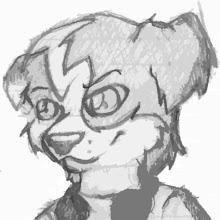(Setting: Victorian Era in an alternate world)
Ordinary World: The story begins with a child named Victor. Victor knows he's different from other people, but he doesn't know what quality makes him different, and he wants more than anything to discover himself and find out what it is.
Call to Adventure: On Victors 18th birthday, the woman he always thought was his mother reveals something life-changing to him: That he's a human clone. He recieves a green book called the "Emerald Journal", and the woman who took care of him tells him to write every memory in that book. The next day Victor wakes up in an empty house with no food or water or life-preserving nececities, and the woman that had taken care of him had abandoned him there. He doesn't remember anything at all, because his memory had been wiped save it be for his name, and the first page in the journal he wrote the day before (Which was basically his discovery that he was a clone).
Refusal to Call: Victor tries to live in the empty house, practically starving himself. He opens the empty journal and reads a note that essentially says from now on he'll remember everything he writes in the journal, but nothing else (he will remember one days events until midnight, and everything he doesn't write he will automatically forget) and it's signed "Your creator, The Engine-Man".
Crossing the Threshold: After much thought, he decides to leave home and search for the "Engine-Man" so he can find his identity. Victor leaves the empty house and searches for society, but he doesn't know where to look since he didn't have a map of any kind, and the house he was living in was remotely located in the middle of the forrest.
Meeting the Mentor: Victor wanders in the forrest for some time until a woman wearing a white mask with no holes for eyes runs past him. Victor hides behind a rock to see what she was running from, and several men with guns follow shortly behind. When the men with guns leave, the woman in the mask sneaks up behind Victor and introduces herself as Beatrice. Victor asks her why she's wearing the mask, and she tells him she's a human clone, and the woman she was cloned from had a 100,000 dollar bounty on her head, which is why she was created and why she was running from bounty hunters, as well as why she wore the mask. She offers to take Victor to the nearest town if he will offer her protection. He accepts, and writes the event in his journal.
Test 1: While Victor is sleeping, Beatrice reads his journal, but mostly discovers the name "Engine-Man". When Victor wakes up the next morning, Beatrice forces Victor to go in the opposite direction they were following. He asks why they changed directions, and Beatrice says "I'm taking you to your creator, he'll have answers".
Allies/enemies: They travel to the capital city and Beatrice takes Victor to see the "Engine-Man", who Beatrice claims was her creator as well, and she blames him for all of her misery. She leads Victor to a door in a hidden alley and they are welcomed by the "Engine-Man". The Engine-Man was so named because he was the first man to create a steam-powered cloning machine. He puts on the facade of someone who wants to help, and he allows Victor and Beatrice to stay the night. They accept, but Beatrice still doesn't trust him.
Approach: Beatrice awakens at knifepoint. Victor is above her ready to stab her to death. Beatrice manages to push back Victor and tell him that he's being controled by somebody. Victor doesn't know what to believe. He's conflicted, so instead of taking action, he drops his knife and breaks down. It is now apperant not only that someone is controling Victors memory besides himself, and that same person wants Beatrice to stop intervening.
Test/Allies/Enemies 2: Beatrice uses a drug to put Victor to sleep, and searches the Engine-Man's lab and discovers a blue book that looks almost exactly like the emerald journal. She opens it up and begins to read passages from the journal. After reading the most recent entry, which said only "Kill Beatrice", it becomes evident that the book she's reading is the method the scientist had been using to control Victors memories.
Ordeal: She rips out the page, but before she can do anything with the journal she gets caught by the Engine-Man, who attempts to kill her. Victor, having awakened, grabs the Engine-Man by the neck and throws him into the cloning machine, which then malfunctions and supposedly kills the Engine-man
Reward: Victor discovers that he doesn't need to know who he was in order to live his life as who he is.
The road back: Victor and Beatrice decide to go together to hide out in the house that the story began with.
Hero: Victor
Mentor: Beatrice
Threshold Guardian: Victors "Mother"
Herald: The men who chase Beatrice at the beginning.
Shapeshifter: Victors "Mother"
Shadow: The "Engine-man"
Trickster: Men who chase Beatrice at the beginning.
Reward: Victor discovers that he doesn't need to know who he was in order to live his life as who he is.
The road back: Victor and Beatrice decide to go together to hide out in the house that the story began with.
Hero: Victor
Mentor: Beatrice
Threshold Guardian: Victors "Mother"
Herald: The men who chase Beatrice at the beginning.
Shapeshifter: Victors "Mother"
Shadow: The "Engine-man"
Trickster: Men who chase Beatrice at the beginning.



